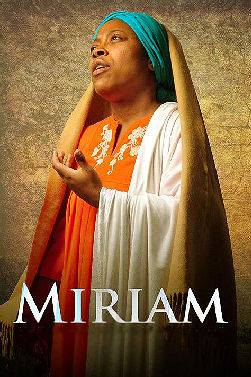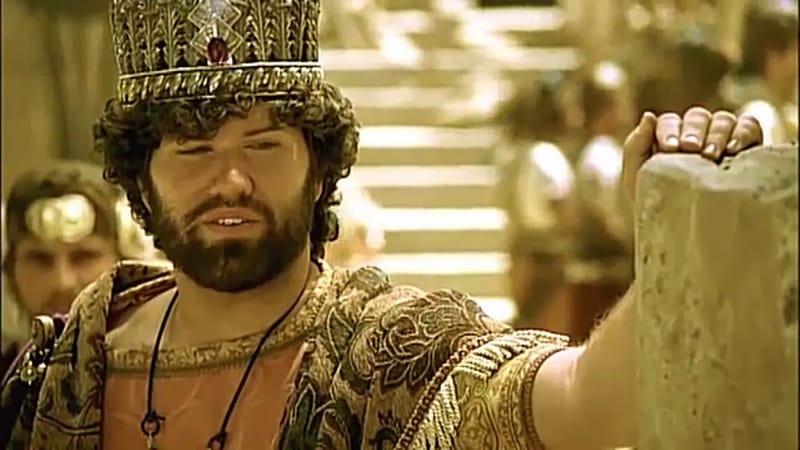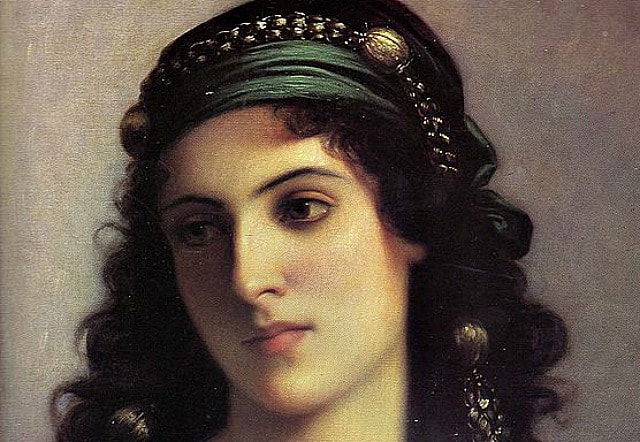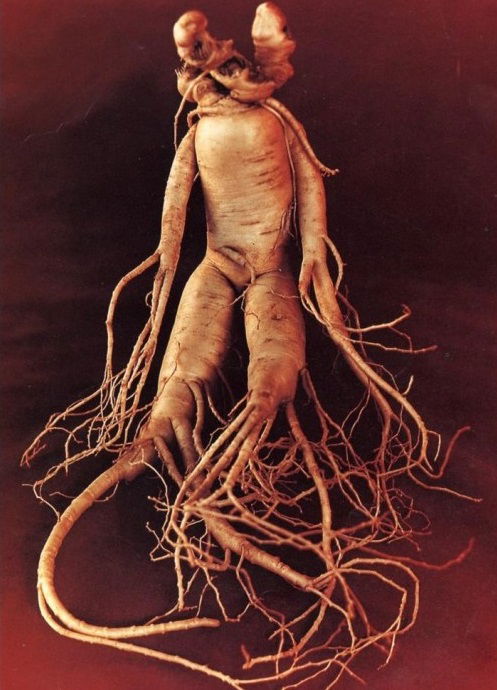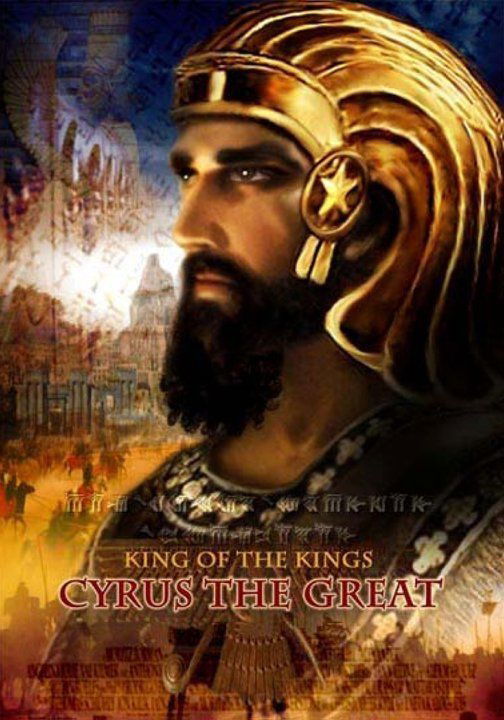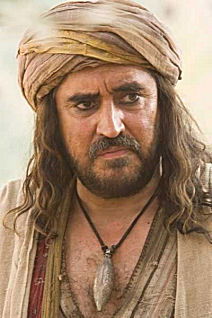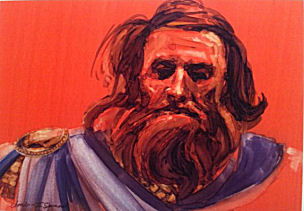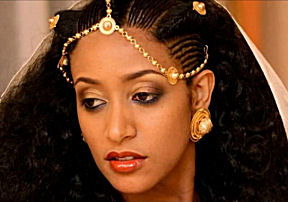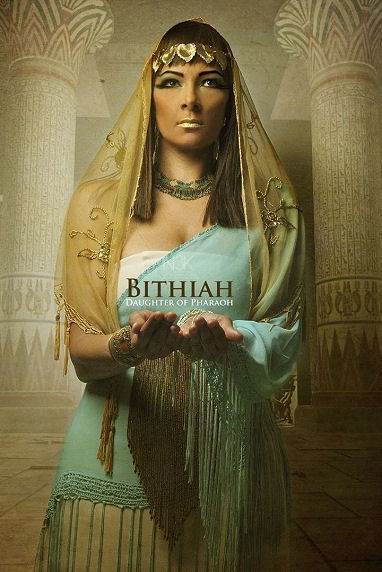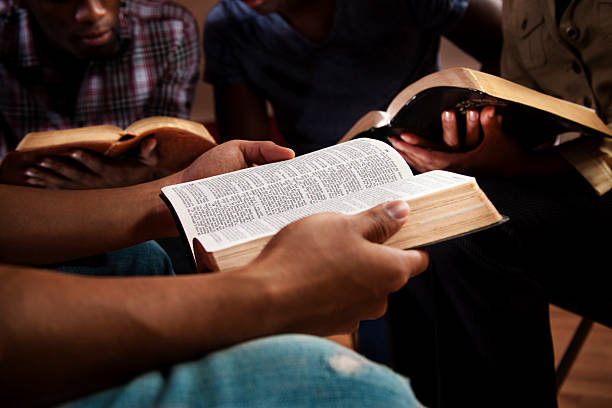Events
WHO WAS MIRIAM? She was the sister of Moses and Aaron. She is the first woman in the Bible called a prophetess. What did she do? As a prophetess, she had a role in relating God’s messages. She enjoyed a prominent position in Israel and shared with the men in a victory .—Exodus 15:1, 20, 21. She first saved her baby brother Moses from being killed by pharaoh's men and who was adopted by Pharaoh's own daughter and Miriam cleverly arranged for the the baby's real mother to be the wet nurse for him. Sometime later, Miriam and Aaron spoke critically of Moses. They were evidently motivated by pride and jealousy. God “was listening,” and he strongly counseled both Miriam and Aaron. (Numbers 12:1-9) God then struck Miriam with leprosy, apparently because she had instigated the critical talk. When Moses pleaded with God on her behalf, God healed her. After a seven-day quarantine, she was allowed to rejoin the camp of Israel.—Numbers 12:10-15. The Bible indicates that Miriam accepted the correction. Centuries later, God referred to her unique privilege when he reminded the Israelites: “I sent before you Moses, Aaron, and Miriam.”—Micah 6:4.' What can we learn from Miriam? Miriam’s story reveals that God pays attention to what his worshippers say to or about one another. We also learn that to please God, we must avoid undue pride and jealousy—traits that may cause us to smear the good reputation of others. The Song of Miriam Exodus 15:19-21 Miriam’s role as a leader of the Hebrew women was obviously more extensive than is shown in the biblical text. Despite her personal charisma and power, her story has to a large extent been subsumed into the story of her brother Moses. Rulers in the ancient world led through force of arms and military might. Miriam model of leadership, She led by example served her people rather than ruled them did what she believed God wanted rather than serving her own ends.
King Josiah of Judah, the last good king of the southern kingdom before the exile, led God’s people in a short-lived revival and reformation during his thirty-one years on the throne (2 Kings 22:1–23:25). But when Josiah died, Judah returned to the wickedness that had marked the land before Josiah. As Matthew Henry aptly observes in his commentary, “Jerusalem saw not a good day after Josiah was laid in his grave, but one trouble came after another, till within twenty-two years it was quite destroyed.” After Josiah was killed in battle with Pharaoh Neco of Egypt, the Judahites made his son Jehoahaz king. His reign, which was marked by his doing “evil in the sight of the LORD,” would last only three months before Neco removed him from the throne. Neco had brought Judah under his control when he defeated Josiah, and evidently Jehoahaz did something to displease the pharaoh, though the text does not tell us what. In any case, Jehoahaz was not godly like his father, and the land of Judah suffered for it (2 Kings 23:30b–33). After deposing Jehoahaz, Neco took another of Josiah’s sons, Eliakim, renamed him Jehoiakim, and set him on the throne. The renaming signified that Neco and Egypt had the real power over Judah, not Jehoiakim. Jehoiakim continued to tax the Judahites in order to send tribute to Egypt, and during his eleven-year reign, he also “did what was evil in the sight of the LORD” (vv. 34–37). That brings us to 2 Kings 24:1, where we read that “Nebuchadnezzar king of Babylon came up, and Jehoiakim became his servant for three years.” We are reading about events that took place in about 606 BC, the third year of Jehoiakim’s reign, when Nebuchadnezzar II was expanding the reach of the Babylonian Empire and gained control of Judah after defeating Egypt. Unsurprisingly, Judah did not submit to Babylon without a fight. Nebuchadnezzar besieged Jerusalem, and in keeping with Babylonian practice, he took many of the members of the Judahite royal family as well as promising young leaders to Babylon, including the prophet Daniel and his friends Hananiah, Mishael, and Azariah (Dan. 1:1–7). After three years of subjection to Babylon, Jehoiakim rebelled, and the rest of his reign was marked by continual decline as he fought the Chaldeans (Babylonians) and many others (2 Kings 24:1–7). As the Lord had promised, He was bringing disaster upon Jerusalem and Judah to punish the people’s evil (21:10–15).
Abigail’s....... story echoes in the hearts of all women as an example of true submission and courage, even in the face of danger… In 1 Samuel 25, a beautiful story emerges, one of submission and deliverance. Abigail is a lesser-known heroine in the Bible, a humble woman who was married to a wealthy scoundrel. Abigail combined her wisdom with her wealth to appear before an approaching enemy to plead for the safety of her husband’s household. David and 400 of his men were on their way to seek vengeance for Nabal’s foolish response. But one of Nabal’s servants informed Abigail of her husband’s lack of social graces, and what David’s intentions were upon his arrival. Abigail’s response was in stark contrast to that of her husband. She knew who David was and the One that he served. Without hesitation, and without telling her husband, Abigail gathered together food supplies and loaded them on donkeys. Then she headed out to meet the future king of Israel. When Abigail saw David, without a word, she fell on her face before him, bowing herself to the ground. Falling at his feet, Abigail delivered the most humble, heartfelt plea for David to spare her husband’s household. But her request was not made from a heart of fear, nor was it from a heart of anger toward her husband. Rather, while she admitted that her husband was a man of bad character, she reminded David that his life was in the hands of God. His enemies would be destroyed because of God’s justice, and his own house would endure. She only asked in return that, when God had fulfilled everything He had promised, that David remember her. Abigail’s humble response turned David’s heart. He saw the error he was about to make. He himself had just recently spared the life of King Saul, who sought to kill David. Yet David had been quick to exterminate the household of a man who had merely insulted him. His life of exile had angered him, and this anger had nearly driven him to seek vengeance against a man who was not the real enemy. David heeded Abigail’s wise words. He respected her for the great respect she showed her husband’s household, despite his faulty character. He sent her away with a blessing, promising her safe return home and the preservation of the men of Nabal. Abigail’s name is mentioned in Scripture only one more time, as the mother of David’s second-born son. But her story echoes in the hearts of all women as an example of true submission and courage, even in the face of danger. Abigail truly is one of the unsung heroes of the Bible. We would do well to learn from a woman like Abigail, whose wisdom, courage, and fortitude "saved the day "
What are “Mandrakes” Mentioned in the Bible? “Mandrakes” are cited in the Bible five times and refer to the roots of mandrake plants, which sometimes resemble naked humans, particularly the lower areas. They were used as an aphrodisiac and to induce pregnancy, as observed in this passage: 1 When Rachel saw that she was not bearing Jacob any children, she became jealous of her sister. So she said to Jacob, “Give me children, or I’ll die!” 2 Jacob became angry with her and said, “Am I in the place of God, who has kept you from having children?”… 14 During wheat harvest, Reuben went out into the fields and found some mandrake plants, which he brought to his mother Leah. Rachel said to Leah, “Please give me some of your son’s mandrakes.” 15 But she said to her, “Wasn’t it enough that you took away my husband? Will you take my son’s mandrakes too?” “Very well,” Rachel said, “he can sleep with you tonight in return for your son’s mandrakes.” 16 So when Jacob came in from the fields that evening, Leah went out to meet him. “You must sleep with me,” she said. “I have hired you with my son’s mandrakes.” So he slept with her that night… 22 Then God remembered Rachel; he listened to her and enabled her to conceive. 23 She became pregnant and gave birth to a son and said, “God has taken away my disgrace.” 24 She named him Joseph and said, “May the Lord add to me another son.” Genesis 30:1-2,14-16,22-24 Rachel was the favored wife of Jacob, whose name was changed to Israel (Genesis 32:22-32). She wasn’t able to bear children for her husband and so made a bargain with her older homely sister, Leah – also married to Jacob – to allow Leah to sleep with Jacob in exchange for the mandrake plants that Leah’s son had found. The passage doesn’t say that the Mandrake roots actually worked to induce pregnancy, just that “God remembered Rachel” and thus enabled her to conceive her son Joseph. Nevertheless, it’s clear that mandrake roots were thought to augment sex & procreation and were sought after for this purpose. Mandrakes are also mentioned in Solomon’s overtly erotic Song of Songs (see 7:13). As noted, Mandrake roots sometimes look like nude bodies, particularly the nether regions. So the fact that they were used as an aphrodisiac and to induce pregnancy would be a natural correlation. Think about it in terms of walnuts, which resemble human brains when cracked open; they’re coincidentally the top nut for brain health. Similarly, tomatoes resemble the heart when opened up — the “chambers,” etc. — and they’re by happenstance strategic to cardiac health, is this mere coincidence, or did our Creator do this purposely? The fact that (1) the LORD created mandrake roots, (2) they’re cited in Holy Scripture five times, (3) they resemble the lower regions of naked humans and (4) were used to augment sex & procreation shows that the Almighty is an imaginative Creator, not to mention has a sense of humor. Do mandrake roots actually “work”? I have no idea, but Rachel obviously believed they did; and belief is faith, which opens the door to the miraculous.
RAHAB THE PROSTITUTE Rahab was a prostitute. That stark fact so alarmed some Bible commentators in the past that they claimed that she was merely an innkeeper. The Bible, though, is quite clear and does not whitewash the facts. (Joshua 2:1; Hebrews 11:31; James 2:25) In Canaanite society, **Rahab’s **profession was probably respectable enough. However, culture cannot always eradicate conscience, that inner sense of right and wrong that God has given us all. (Romans 2:14, 15) Rahab may have keenly sensed that her way of life was degrading. Perhaps, like many today in such walks of life, she felt that she was trapped, with no other choice if she wanted to care for her family. No doubt Rahab longed for a better life. Her homeland was full of violence and depravity, including incest and bestiality. (Leviticus 18:3, 6, 21-24) The prevalence of such evils in the land had much to do with religion. The temples promoted ritual prostitution, and the worship of such demonic gods as Baal and Molech included the burning of children alive in sacrificial fire God was not blind to what was going on in Canaan. In fact, because of the many wicked practices of the Canaanites, God said: “The land is unclean, and I shall bring punishment for its error upon it, and the land will vomit its inhabitants out.” (Leviticus 18:25) What did “punishment for its error” involve? In general, Israel was given this divine promise: “ your God will certainly push these nations away from before you little by little.” (Deuteronomy 7:22) Centuries earlier, God had promised the land to the family of Abraham, and “God . . . cannot lie.”—Titus 1:2; Genesis 12:7. However, God also decreed that certain groups in the land were to be completely wiped out. (Deuteronomy 7:1, 2) As the righteous “Judge of all the earth,” he had read every heart and knew well how deeply entrenched their wickedness and depravity were. (Genesis 18:25; 1 Chronicles 28:9) What was it like for Rahab to live in such a condemned city? We can only imagine how she felt as reports about Israel reached her ears. She learned that the God of Israel had led his people—a downtrodden nation of slaves—to complete victory over the army of Egypt, the mightiest fighting force in the world of that time. And now Israel was about to attack Jericho! Yet, the people of that city persisted in their wickedness. We can see why the Bible speaks of **Rahab’s **fellow Canaanites as “those who acted disobediently.”—Hebrews 11:31. **Rahab ** was different. Over the years, she could have contemplated the reports she heard about Israel and its. How completely unlike the Canaanite gods he was! Here was a God who fought for his people instead of victimizing them, who elevated the morals of his worshippers instead of debasing them. This God treated women as precious, not as mere sexual objects to be bought, sold, and degraded in vile worship. When Rahab learned that Israel was camped across the Jordan, poised to invade, she must have been dismayed over what that could mean for her people. Did God notice Rahab and value the good in her? Today, there are many people like Rahab. They feel trapped, stuck in a way of life that robs them of dignity and joy; they feel invisible and worthless. Rahab’s case is a comforting reminder that none of us are invisible to God. No matter how low we feel, “he is not far off from each one of us.” (Acts 17:27) He is close by, ready and eager to offer hope to all those who put faith in him. Did Rahab do that? SHE RECEIVED THE SPIES One day, sometime before Israel marched around Jericho, two strangers appeared at Rahab’s door. The two men were hoping to pass unnoticed, but in that tense city, many were on the alert to detect any potential spies from Israel. Sharp-eyed Rahab may have been quick to draw her own conclusions. Not that it was unusual for strange men to come to her door, but these two wanted only lodging—not the services of a prostitute. The two men were, in fact, spies from the camp of Israel. Their commander, Joshua, had sent them to ascertain the strengths and weaknesses of Jericho. This was the first city of Canaan that Israel was to invade and perhaps the strongest of them all. Joshua wanted to know just what he and his men would be facing. The spies no doubt chose Rahab’s house deliberately. Here of all places, at the home of a prostitute, strangers might pass unnoticed. Perhaps the spies also hoped to pick up useful information from any careless talk they might overhear. The Bible says that Rahab “received the messengers hospitably.” (James 2:25) She took them into her home, and even if she had suspicions about who they were and why they were there, she let the men stay. Perhaps she hoped to learn more about their. Suddenly, though, messengers from the king of Jericho arrived! Word had spread that spies from Israel had come to the house of Rahab. What would **Rahab ** do? If she protected those two strangers, might she not put herself and her entire household at risk? Would not the people of Jericho slaughter them all if she sheltered such enemies? On the other hand, Rahab could now have no doubt about the identity of the men. If she already knew that God of Israel was a far better God than her own, might this be her opportunity to take a stand on God's side? **Rahab ** had little time to think, yet she was resourceful and acted quickly. She had the spies hide among stalks of flax that were laid out to dry on the flat roof of her house. Then she spoke to the king’s messengers, saying: “Yes, the men did come to me, and I did not know from where they were. And it came about at the closing of the gate by dark that the men went out. I just do not know where the men have gone. Chase after them quickly, for you will overtake them.” (Joshua 2:4, 5) Imagine Rahab watching the faces of the king’s emissaries. Did she wonder if they could tell that her heart was racing? We can learn an essential truth about faith from Rahab. As the Bible puts it, “faith follows the thing heard.” (Romans 10:17) She heard reliable reports about the power and the just God, so she put her faith and trust in him. Today, we have far more knowledge about God available to us. Will we seek to get to know him and put faith in him based on what we learn in his Word, the Bible?
Jeremiah was born and grew up in the village of Anathoth, a few miles northeast of Jerusalem, in a priestly family. ... According to the biblical Book of Jeremiah, he began his prophetic career in 627/626—the 13th year of King Josiah's reign. **A priest from Anathoth, Israel, he is the reputed author of the Book of Jeremiah. **Not all of the writings ascribed to Jeremiah are considered by modern scholars to be really his. In fact, it is not certain that he ever actually wrote a line. It seems more likely that he dictated much of his material to an assistant or secretary called Baruch who was a scribe (read the book that bears his name for more information). Jewish tradition also ascribes the Book of Lamentations and the Book of Kings to Jeremiah. Jeremiah is also known as the "weeping prophet" since he lamented over the forth coming demise over his people in jerusalem. Jeremiah's words and pronouncements are directly concerned with the febrile political maneuvering between 605 and 586 B.C. and with the Babylonian Captivity. His early message was simple: unless both king and people reformed their morals and returned to the true worship of God as taught by Moses, Jerusalem would be destroyed and its people killed or exiled.** Jeremiah's general message was that temple and priesthood and kingship were of no avail if the heart of man was not clean from idolatry, from lies, and from deception of all kinds. His novel contribution as a prophet was his claim that God would replace the Old Covenant with the Israelites by a new covenant. Peculiarly, this new covenant was not to be restricted to Jews but was to include all the world. Jeremiah taught a universalist creed which would embrace all people. ** Jeremiah, was friendly to Nebuchadrezzar, regarding him as Yahweh's instrument for the chastisement of the nation of Judah. It might be that Jeremiah was left in Jerusalem and preached to the remaining people there while the prophet Ezekiel was taken to Babylon by king Nebuchadnezzar with the first set of exiles.
**Cyrus the Great ** (c. 600 or 576 – 530 BC) figures in the Hebrew Bible as the patron and deliverer of the Jews. He is mentioned 23 times by name and alluded to several times more. According to the Bible, Cyrus the Great, king of Persia, was the monarch under whom the Babylonian captivity ended, (as was decreed by God in the Book of Isaiah, in the 45th chapter, about 100 years prior to the captivity of the Jews.) In the first year of his reign he was prompted by God to decree that the Temple in Jerusalem should be rebuilt and that such Jews as cared to might return to their land for this purpose. Not much is known about the early life of Cyrus. The various oral traditions relating to his birth and youth are preserved only in the works of Greek authors like Herodotus, Ctesias, and Xenophon, of a mostly legendary nature except that Cyrus was the son of the Persian king Cambyses (c. 580-559 BCE) and the Median princess Mandane, daughter of the Median king Astyages (585-550 Not long after the conquest of Babylon, Cyrus commissioned a building inscription to be written in his name. This building inscription, better known as the Cyrus Cylinder, served to explain and justify Cyrus’ conquest of Babylon to a Babylonian audience. The document appeals heavily to the Babylonian ideals of kingship. Nabonidus is described as an incompetent, godless king, while Cyrus is described as a divinely appointed saviour. King Cyrus the great has counquered many other countries besides Babylon and is mentioned in further accounts of his history. However, he is the second part of the statue mentioned in the dream of King Nebuchadnezzar that the Prophet Daniel interpreted for him. Each consecutive part of that statue representing a conquering nation was weaker than the preceding oneof which Babylon was the head of Gold. Read the book of Daniel for further details of this story.
Bethuel (meaning in hebrew “house of God”), in the Hebrew Bible, was an Aramean man, the youngest son of Nahor and Milcah, the nephew of Abraham, and the father of Laban and Rebecca. Bethuel was also a town in the territory of the tribe of Simeon, west of the Dead Sea. Learn about** Bethuel** in Genesis 22:23
Joab was a son of Zeruiah, King David’s sister (1 Chronicles 2:13–17) and was therefore one of David’s nephews. Joab’s brothers were two of David’s brave warriors, Abishai and Asahel. Joab was positioned as commander of David’s armies because of his victory over the Jebusites, resulting in the possession of the city of Jerusalem. It was through this victory that Jerusalem became “the city of David” (1 Chronicles 11:4–9). Joab fought and won many battles for the king, but his personal lack of self-control was problematic. In a war against the forces of Ish-Bosheth, Joab’s brother Asahel was killed by Abner, the commander of Ish-Bosheth’s armies. Joab was furious and pursued Abner to kill him, but Abner escaped (2 Samuel 2:12–32). Later, after Abner swore allegiance to David, Joab’s fuse blew, and his desire to avenge his brother’s blood drove him to deceive and murder Abner (verses 26–27). This action deeply grieved David, but the king felt unable to bring justice against the mighty Joab (verse 39). Instead, David pronounced a curse over Joab and his future descendants: “May his blood fall on the head of Joab and on his whole family! May Joab’s family never be without someone who has a running sore or leprosy or who leans on a crutch or who falls by the sword or who lacks food” As the commander of David’s armies, Joab was provided many victories by God, but Joab caused much grief to the king and to Israel. His anger and perhaps the power of his position drove him to poor decisions at times. In addition to his murder of Abner, Joab killed his own cousin, Amasa—and his betrayal was Judas-style, accompanied by a kiss: “Joab said to Amasa, ‘How are you, my brother?’ Then Joab took Amasa by the beard with his right hand to kiss him. Amasa was not on his guard against the dagger in Joab’s hand, and Joab plunged it into his belly, and his intestines spilled out on the ground. Without being stabbed again, Amasa died” (2 Samuel 20:9–10). Joab disobeyed King David’s command to spare Absalom’s life, himself striking Absalom with three javelins (2 Samuel 18). David mourned the death of his son Absalom, a response that was sternly reprimanded by Joab (2 Samuel 19:1–8). It was also Joab who, in accordance with David’s command, placed Uriah the Hittite at the front of the battle to be killed, so that David could feel justified in marrying Uriah’s widow Bathsheba. (2 Samuel 11). Joab, for all his faults, was obviously a capable man of war and valiant on the battlefield. And he ought to be given credit for his loyalty to David for almost four decades. Joab also counseled David when David sinfully desired to take a census; if David had heeded Joab’s advice, he could have spared his nation the plague that befell Israel (2 Samuel 24). When David was on his death bed, Joab conspired with Adonijah to install Adonijah as the next king, instead of Solomon (1 Kings 1). This action, plus Joab’s other rash decisions, vengeful murders, and inability to take certain important orders, finally drove David over the edge. David commanded Solomon to ensure Joab’s execution, an act that was carried out by Benaniah as Joab was clinging to the horns of the altar in hopes of finding clemency (1 Kings 2:5–6, 28–34). Read also 2 Samuel 14 the story is very interesting and shows that they were too, humans like us doing human things. Joab never liked Absalom either making things more difficult. I mean they had their own differences. Comments Tony Charmz This is a fascinating story and a sad one also, Galatians 6:7 Whatever you sow you will also reap....He who lives by the sword dies by the sword. Mathew 26,26:52 Reply Share 3y Reyes Melchor Aaron Jethroe One of the stories I like reading most is that of David's. Reply Share 3y
Where was the Queen of Sheba actually from? The Bible mentions a whole lot of people who remain a mystery to this day, from Adam and Eve to the Antichrist. Naturally, many of these characters haven't been historically verified, and quite a few have been written off as nothing more than metaphors. The Queen of Sheba is one such figure, largely because she only shows up in one Biblical story. The tale goes that she heard King Solomon was this awesome, smart ruler. So she rolled up in all her gold and finery to test him with riddles. Solomon answered every question, and as a result, the queen was pretty impressed. She then gave him gifts of gold and spices, and in return, the (obviously smitten) king gave her "all she desired." And then the queen sauntered off back to her own land. However, the queen is way too cool to just be featured in one Bible story. the country that claims the Queen of Sheba most strongly is Ethiopia. There's a lot of weirdness around King Solomon getting it on with the queen. There's no solid proof that it happened, and a lot of it is told through folklore. But one thing that would make total sense is the political intrigue around the Queen of Sheba's land. After all, folks were constantly going to war over territory. And King Solomon may have been wise, but even he might have fallen for all that potential gold and incense. Well, the Ethiopian people believe that their first emperor, Menelik I, was indeed the son of King Solomon and the Queen of Sheba. The Queen of Sheba, known in Ethiopia as Makeda, is mentioned in both the Bible and the Quran. The Bible discusses diplomatic relations between this monarch and King Solomon of Israel, but Ethiopian tradition holds that their relationship went deeper: Makeda's son, Menelik I, the first emperor of Ethiopia, is said to be Solomon's offspring. Whether this tale is true or not, Christian Science Monitor confirms that Ethiopia had a lot of interaction with Israel and it's neighboring nations back in the day as a "gateway country" to the Middle East. Need proof? Well, present-day Ethiopians' DNA is 40-50 percent based outside of Africa. Languages that originated in the Middle East are spoken in Ethiopia, and the two regions even share farming techniques and crops, suggesting communication over time.
Who is Bithiah? Pharaoh's daughter is referred to as Bithiah, and she is the daughter of Ramesses I, the founding pharaoh of the Nineteenth Dynasty of Egypt, and sister to his successor, Seti I. She is portrayed as a young widow, childless. Though some variations of her story exist, the general consensus among Jews, Christians, and Muslims is that she is the adoptive mother of the prophet Moses. In the Judeo-Christian narrative, Pharaoh's daughter first appears in the Book of Exodus, in Exodus 2:5-10. The passage describes her discovery of the Hebrew child, Moses, in the rushes of the Nile River and her willful defiance of her father's orders that all male Hebrew children be slain, instead taking the child, whom she knows to be a Hebrew, and raising him as her own son. Pharaoh's daughter, was having suffered from a skin disease. The pain of which only the cold waters of the Nile could relieve, and that these lesions healed when she found Moses. Rabbinic literature describes an encounter with the archangel Gabriel, who kills two of her handmaidens for trying to dissuade her from rescuing Moses. After Moses is weaned, Pharaoh's daughter gives him his name, purportedly taken from the word māšāh (Hebrew: meaning "to draw")because she drew him from the water, In her later years, Pharaoh's daughter devotes herself to Moses, and to Yahweh; she celebrates the first Passover Seder with Moses in the slaves' quarters and for that, her firstborn is the only Egyptian to survive the final of the Ten Plagues of Egypt, and leaves Egypt with him for the Promised Land. In the Books of Chronicles, (1 Chronicles 4:18), she is said to have married a member of the Tribe of Judah, Mered, and to have had children with him, and she is referred to as a Jewess, indicating that she had accepted Yahweh as her own God.
Have you ever found yourself in an unfamiliar situation with a difficult decision to make? Have you ever suffered a loss that changed your life, or moved to a new place where you didn’t know anyone, nothing was familiar and you wondered if you would ever belong? The book of Ruth in the Bible tells the story of a woman who found herself in this very situation, but through her obedience and faithfulness finds rescue and redemption. Ruth was a Moabite woman who had married Mahlon, an Ephrathite man from the tribe of Judah. When her father-in-law, brother-in-law and husband all died, Ruth was faced with an impossible choice: stay with her mother-in-law, Naomi, whom she loved, and follow her back to Bethlehem, or return to her own people in Moab. This was a difficult choice because in those days, women relied upon having a husband and sons to provide for them. Ruth loved Naomi and didn’t want to leave her alone without a husband or sons to take care of her, yet if she returned home to Moab, she could marry again and have children of her own. Even though Naomi tried to talk her out of it, Ruth was determined to stay with Naomi and return with her to Bethlehem, Naomi’s hometown. Ruth and Naomi’s return to Bethlehem was a humble and difficult one. With no husbands or sons to provide for them, Ruth had to go through the barley fields after the harvesters had finished for the day and scrounge for leftovers for herself and Naomi. This is when she caught the attention of a man named Boaz, a relative of Naomi’s late husband, and owner of the barley field where Ruth had come to glean scraps of grain. Boaz was a kind and generous man, and after he invited Ruth to eat with him and his servants, he instructed his servants to protect Ruth, and allow her to work with them. He even instructed them to pull up and leave full stocks of grain for her to gather easily. When she returned to Naomi that evening with nearly 30 lbs of grain, Naomi was amazed at the generosity Boaz had shown them. Now, according to the law God had given the Israelites, a kinsman-redeemer was a male relative who had the responsibility to act on behalf of a family member who was in trouble, danger, or need. This kinsman redeemer could deliver or rescue a property or person. Because Boaz was a relative of Naomi’s, Naomi recognized that Boaz could be a kinsman-redeemer for her and Ruth. If Boaz was willing to marry Ruth, they would be rescued from their life of poverty. Naomi instructed Ruth to offer herself to Boaz for marriage. Though this was a daunting and humbling act for Ruth, Boaz regarded it as kindness, because she could have chased after a younger man for a husband, but he was honored that she would want him. Boaz and Ruth married and had a son, named him Obed. Obed then became the father of Jesse, who was the father of David, and through this line, the Messiah came. Read all about Ruth in the Book bearing her name in the Bible.
Bible Study every Sunday from 1pm to 2pm online. Email us if you are interested a zoom info will be sent to you prior to start of event.
